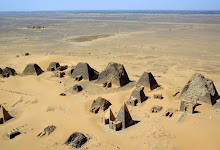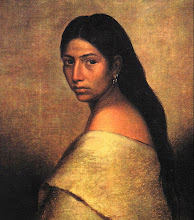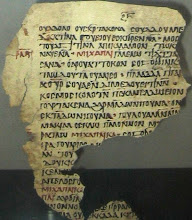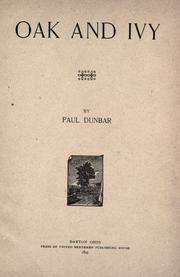This is a tale from the Ashanti. The tales of Ananse, the spider, is known among the African diaspora all over the Americas.
Kwaku Ananse, the spider, once went to Nyankonpon, the sky-god, in order to buy the sky-god's stories. The sky-god said, "What makes you think
you can buy them?" Ananse answered and said, "I know I shall be able." Thereupon the sky-god said, "Great and powerful towns like Kokofu, Bekwai, Asumengya, have come, but they were unable to purchase them, and yet you who are but a mere masterless man, you say you will be able?"
Ananse said, "What is the price of the stories?" The sky-god said, "They cannot be bought for anything except Onini, the python; Osebo, the leopard; Mmoatia, the fairy; and Mmoboro, the hornets." Ananse said, "I will bring some of all these things, and, what is more, I'll add my old mother, Nsia, the sixth child, to the lot."
The sky-god said, "Go and bring them then." Ananse came back, and told his mother all about it, saying, "I wish to buy the stories of the sky-god, and the sky-god says I must bring Onini, the python; Osebo, the leopard; Mmoatia, the fairy; and Mmoboro, the hornets; and I said I would add you to the lot and give you to the sky-god."
Now Ananse consulted his wife, Aso, saying, "What is to be done that we may get Onini, the python?"Aso said to him, "You go off and cut a branch of a palm tree, and cut some string-creeper as well, and bring them." And Ananse came back with them. And Aso said, "Take them to the stream." So Ananse took them; and, as he was going along, he said, "It's longer than he is, it's not so long as he; you lie, it's longer than he."
Ananse said, "There he is, lying yonder." The python, who had overheard this imaginary conversation, then asked, "What's this all about?" To which the spider replied, "Is it not my wife, Aso, who is arguing with me that this palm branch is longer than you, and I say she is a liar." And Onini, the python, said, "Bring it, and come and measure me." Ananse took the palm branch and laid it along the python's body. Then he said, "Stretch yourself out." And the python stretched himself out, and Ananse took the rope-creeper and wound it and the sound of the tying was
nwenene! nwenene! nwenene! until he came to the head.
Ananse, the spider, said, "Fool, I shall take you to the sky-god and receive the sky-god's tales in exchange."
So Ananse took him off to the sky-god. The sky-god then said, "My hand has touched it, there remains what still remains."
Ananse returned and came and told his wife what had happened, saying, "There remain the hornets." His wife said, "Look for a gourd, and fill it with water and go off with it." Ananse went along through the bush, when he saw a swarm of hornets hanging there, and he poured out some of the water and sprinkled it on them. He then poured the remainder upon himself and cut a leaf of plantain and covered his head with it.
And now he addressed the hornets, saying, "As the rain has come, had you not better come and enter this, my gourd, so that the rain will not beat you; don't you see that I have taken a plantain leaf to cover myself?" The the hornets said, "We thank you, Aku, we thank you, Aku." All the hornets flew, disappearing into the gourd,
fom! Father spider covered the mouth, and exclaimed, "Fools, I have got you, and I am taking you to receive the tales of the sky-god in exchange."
And he took the hornets to sky-god. The sky-god said, "My hand has touched it; what remains still remains."
Ananse came back once more, and told his wife, and said, "There remains Osebo, the leopard." Aso said, "Go and dig a hole." Then Ananse went off to look for the leopard's tracks, and, having found them, he dug a very deep pit, covered it over, and came back home. Very early next day Ananse said he would go off, and when he went, lo, a leopard was lying in the pit. Ananse said, "Little father's child, little mother's child, I have told you not to get drunk, and now, just as one would expect of you, you have become intoxicated, and that's why you have fallen into the pit. If I were to say I would get you out, next day, if you saw me, or likewise any of my children, you would go and catch me and them." The leopard said, "O! I could not do such a thing."
Ananse then went and cut two sticks, put one here, and one there, and said, "Put one of your paws here, and one also of your paws here." And the leopard placed them where he was told. As he was about to climb up, Ananse lifted up his knife, and in a flash it descended on his head,
gao! was the sound it made. The pit received the leopard and
fom! was the sound of the falling. Ananse got a ladder to descend into the pit to go and get the leopard out. He got the leopard out and came back with it, exclaiming, "Fool, I am taking you to exchange for the stories of the sky-god."
He lifted up the leopard to go and give to the sky-god. He said. "My hands have touched it; what remains still remains."
Then Ananse came back, carved an Akua's child, a black flat-faced wooden doll, tapped some sticky fluid from a tree and plastered the doll's body with it. Then he made
eto, pounded yams, and put some in the doll's hand. Again he pounded some more and placed it in a brass basin; he tied string round the doll's waist, and went with it and placed it at the foot of the odom tree, the place where the fairies come to play.
And a fairy came along. She said, "Akua, may I eat a little of this mash?" Ananse tugged at the string, and the doll nodded her head. The fairy turned to one of the sisters, saying, "She says I may eat some." She answered, "Eat some, then."
And she finished eating, and thanked her. But when she thanked her, the doll did not answer. And the fairy said to her sister, "When I thank her, she does not reply." The sister said, "Slap her." And she slapped it,
pa! And her hand stuck. She said to her sister, "My hand has stuck." She said, "Take the one that remains and slap her again." And she took it and slapped her,
pa! and this one, too, stuck to it. And Ananse came and tied her up, and he said, "Fool, I have got you, I shall take you to the sky-god in exchange for his stories." And he went off home with her.
Now Ananse spoke to his mother, Ya Nsia, the sixth child, saying, "Rise up, let us go, for I am taking you along with the fairy to go and give you to the sky-god in exchange for his stories." He lifted them up, and went off to where the sky-god was.
Arrived there he said, "Sky-god, here is a fairy and my old woman whom I spoke about, here she is, too." Now the sky-god called his elders, the Kontire and Akwam chiefs, the Adonten, the Gyase, the Oyoko, Ankobea, and Kyidom. And he put the matter before them, saying, "Very great kings have come, and were not able to pay the price: I have received from him Osebo, the leopard; Onini, the python; and of his own accord, Ananse has added his mother to the lot; all these things lie here." He said, "Sing his praise."
"
Eee!" they shouted. The sky-god said, "Kwaku Ananse, from today and going on forever, I take my sky-god's stories and I present them to you,
kose! kose! kose! my blessing, blessing, blessing! No more shall we call them the stories of the sky-god, but we shall call them spider-stories."
 Adinkra symbol, Ananse Ntontan, "spider's web", stands for wisdom, creativity and the complexities of life
Adinkra symbol, Ananse Ntontan, "spider's web", stands for wisdom, creativity and the complexities of life

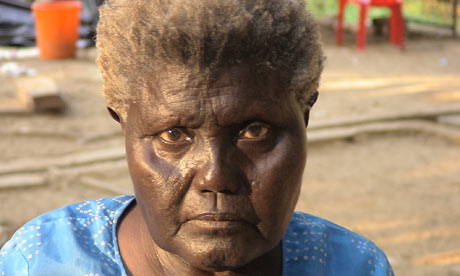



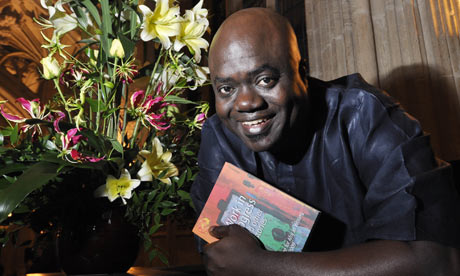








.jpg)

